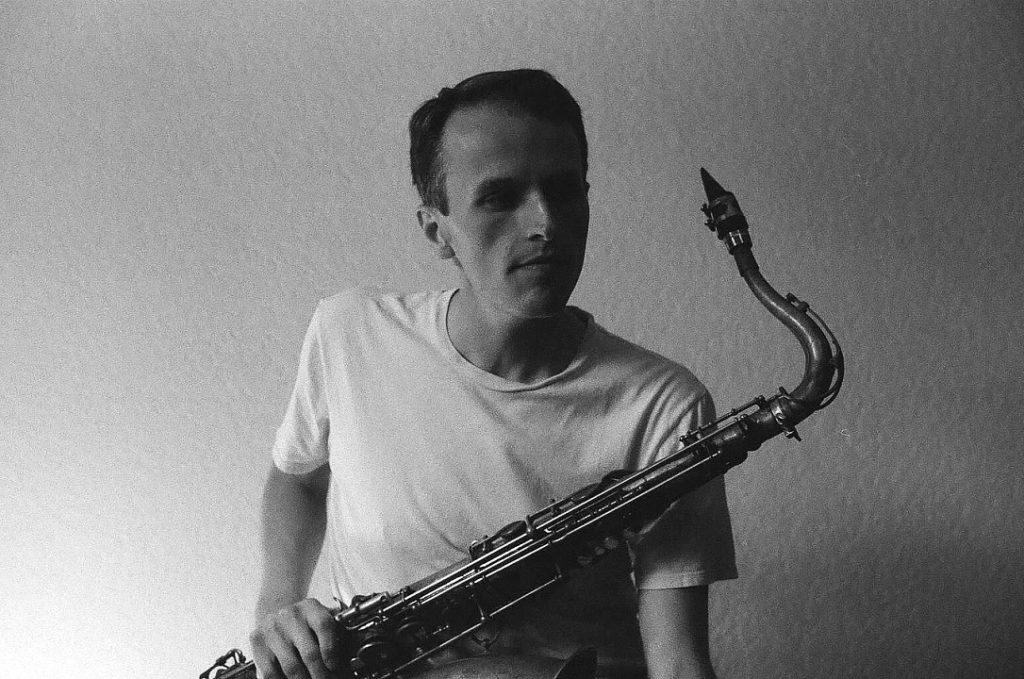
Neil Welch on La musique or l’orchestre rouge by Salvador Dalí
For years now, I rise every morning and step into the living room of whatever house or apartment I happen to be living in, and I look into a painting. I take a few moments and sink into reflection as I view the magnificent La musique or l’orchestre rouge (1957) by Salvador Dalí. A framed print of this painting has followed me from my first apartment as an adult in Seattle, to a rural home on Whidbey Island, to its current spot in my rental in North Seattle. Wherever I live this painting hangs in easy view so that I might encounter it several times a day. It is a striking image—set against a red curtain, a hollow-bodied and faceless white performer in deepest emotion grips the hand of a beautiful black body, expressed in the form of a cello. The ebony “instrument” points upward towards a living branch in an otherwise nearly barren landscape. To the right a weeping white piano with yet another faceless performer lunges towards the instrument, fingers failing to connect with the keyboard. I have been told that this painting is a celebration of music. I have never found it to be as such.
As a performer and composer, I identify with several musical traditions in my work. However, I continue to identify most strongly with my role as a modern jazz musician. I am also a white, college educated middle class male. From my earliest connection to the jazz world as a student to this very moment as a performer, this painting is a daily reminder that I must grapple with the history of systemic racism in western music. Staring into the painting daily, I ask myself questions of extraordinary complexity, many without answers and all in continuous evolution. What is my role as a white performer in a music rooted at its core in the rich cultural contributions of the black community? Does my role as a white jazz musician take up space that ought to be rightly occupied by black performers? Am I adding to the legacy of systemic racism and male dominance in western-based music? Am I honoring, through my work, in my teaching and in my performances, the personal sacrifices made by black musicians who gave us this music which is of such critical importance?
– Neil Welch
(saxophonist and one half of the Seattle drum/sax duo Bad Luck)
Published
Share
